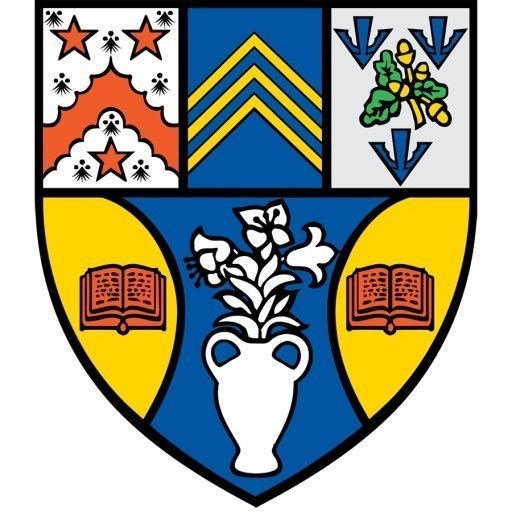Photos of university / #ucl
The Bachelor of Arts in Human Sciences at University College London offers an innovative interdisciplinary program designed to explore the complex interactions between biology, culture, and society in shaping human life. This unique course bridges the natural sciences and social sciences, providing students with a comprehensive understanding of what it means to be human in a diverse and rapidly changing world. Throughout the program, students examine key themes including human evolution, health and medicine, identity, social behavior, and global development. The curriculum combines theoretical perspectives with empirical research methods, equipping students with critical analytical skills and practical experience vital for careers in healthcare, social policy, research, or further academic study. The program emphasizes critical thinking, evidence-based reasoning, and respect for diversity, fostering a holistic perspective on human issues. Students have access to a wide range of modules covering anthropology, psychology, sociology, biology, and medicine, allowing for customization according to their interests. Additionally, the program encourages interdisciplinary projects, internships, and fieldwork, providing valuable real-world insights and professional development opportunities. With a focus on global issues such as health inequalities, migration, and human rights, the course prepares students to engage thoughtfully with contemporary societal challenges. The vibrant academic environment at UCL, coupled with cutting-edge research and dedicated faculty, ensures a stimulating learning experience. Graduates of the Human Sciences program are well-positioned to pursue careers in healthcare, social services, research organizations, NGOs, policy development, or continue their studies at the postgraduate level. Overall, the program aims to cultivate informed, compassionate, and socially responsible individuals equipped to understand and address complex human issues in a multicultural world.
In each year of your degree you will take a number of individual modules, normally valued at 0.5 or 1.0 credits, adding up to a total of 4.0 credits for the year. Modules are assessed in the academic year in which they are taken. The balance of compulsory and optional modules varies from programme to programme and year to year. A 1.0 credit is considered equivalent to 15 credits in the European Credit Transfer System (ECTS).
In your first year you will mostly follow a common syllabus, taking modules in human structure and function (anatomy, physiology, cell biology, molecular biology, and genetics) and in human interactions (anthropology and psychology). Students may also choose between the modules Human Ecology, Revealing Science, and a module in a modern foreign language.
In year two you will take the compulsory module, The Human Sciences in Society, in which you will work in a group to explore a topic of your group's choice within the social sciences. You will also undertake Statistical Methods in Computing.
In year three your compulsory module will be the Human Sciences Seminar Project, wherein you design and carry out a small research project, which you will then write up as a dissertation.
You will choose your remaining modules in years two and three from the extensive range of options in biomedical, biological, environmental, social, historical or philosophical subjects.
A levels
Grades
AAA
Subjects
Science subject required, preferably Biology.
GCSEs
English Language and Mathematics at grade B. For UK-based students, a grade C or equivalent in a foreign language (other than Ancient Greek, Biblical Hebrew or Latin) is required. UCL provides opportunities to meet the foreign language requirement following enrolment, further details at: www.ucl.ac.uk/ug-reqs
IB Diploma
Points
38
Subjects
A total of 18 points in three higher level subjects including science (preferably Biology at grade 6), with no score below 5.
The financing options for the Human Sciences programme at University College London are designed to support students through various funding sources. Most students at UCL finance their studies through a combination of scholarships, government loans, and personal savings. The university offers a range of scholarships and bursaries aimed at both domestic and international students, which can significantly reduce the financial burden. These include merit-based awards, need-based bursaries, and specialized scholarships for specific groups of students. International students are encouraged to explore external funding opportunities, such as government-funded scholarships from their home countries, as well as private organizations that support international education.
For UK students, government-funded student loans provided by the Student Loans Company are available to cover tuition fees and living costs. These loans typically have favorable repayment terms, with repayment contingent on income levels post-graduation. UCL also provides or facilitates access to part time work opportunities both on and off campus, enabling students to support themselves financially while studying. Some students may be eligible for research funding, teaching assistantships, or other academic employment, which can further offset costs.
Additionally, many students utilize personal finances or family support to fund their degree, while others may seek private loans or funding from organizations that support higher education. The cost of attendance at UCL varies depending on residency status, specific course fees, and individual living arrangements, so prospective students are advised to carefully review the university’s financial guidelines and plan accordingly. UCL’s financial aid office offers comprehensive guidance and assistance to help students identify suitable funding sources and navigate the application processes. Overall, the university aims to make Human Sciences accessible to diverse student populations through its robust financial support framework, ensuring that financial barriers do not prevent talented students from pursuing their academic goals.
Human Sciences at University College London (UCL) offers a comprehensive interdisciplinary approach to understanding human behavior, society, and culture. The program integrates perspectives from psychology, anthropology, sociology, and related fields to provide students with a deep and nuanced understanding of human life from multiple angles. Students will engage with both theoretical frameworks and empirical research methods, equipping them with the skills necessary to analyze complex social phenomena and contribute to academic and practical advancements in human sciences.
The curriculum is designed to foster critical thinking, cultural awareness, and methodological competence. Core modules typically include topics such as social psychology, cultural anthropology, history of human societies, and qualitative and quantitative research methods. Students also have opportunities to specialize or tailor their studies through optional modules, allowing them to focus on specific areas such as health, education, or global development.
Throughout the program, students benefit from UCL’s strong research environment and access to world-renowned experts in social sciences and humanities. There are opportunities for fieldwork, independent research projects, and internships, providing practical experience alongside academic learning. The program prepares graduates for careers in research, policy analysis, social services, international development, or further postgraduate study.
The duration of the degree program is typically three years for a full-time bachelor's degree, with options for part-time study. The program emphasizes a multidisciplinary approach, critical analysis, and the development of transferable skills such as data analysis, communication, and teamwork. Entry requirements generally include academic qualifications such as A-levels or equivalent, with an emphasis on humanities or social sciences backgrounds.
UCL’s Human Sciences program is well-suited for students interested in understanding the complexities of human behavior and society, motivated by a desire to make meaningful contributions to social issues and policy. The university's diverse student body and vibrant academic community foster an inclusive environment for learning and research. Graduates leave with a comprehensive understanding of human behaviors across different contexts and the skills necessary to pursue careers that demand analytical rigor and cultural sensitivity.









